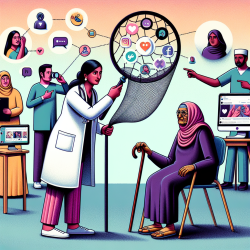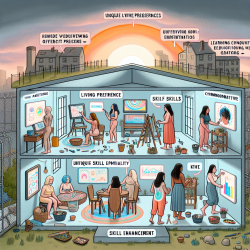The 9th European Conference on Rare Diseases & Orphan Products (ECRD Vienna 2018) has provided invaluable insights into improving the care and outcomes for children with rare diseases. The findings from this conference can significantly enhance the skills of practitioners, especially those providing online therapy services to schools, such as TinyEYE. This blog will delve into the key outcomes of the research presented at ECRD Vienna 2018 and how practitioners can implement these findings to benefit children with rare diseases.
Understanding Rare Diseases: Data-Driven Insights
One of the standout presentations at ECRD Vienna 2018 was a nationwide registry-based mortality study in Spain, focusing on rare diseases (RD). The study highlighted the critical need for population-based data and epidemiological indicators to better understand and manage RD. The data revealed several important trends:
- RD mortality represents 1.2% of all registered deaths in Spain from 1999 to 2013.
- Mortality is higher in males (51.2%) compared to females (48.8%).
- Children under 15 years old account for 15.2% of deaths.
- There has been a 0.95% annual decline in age-adjusted death rates due to all RD.
These insights underscore the importance of robust data collection and analysis in understanding the impact of rare diseases on different demographics. Practitioners can use this data to tailor their therapeutic approaches and prioritize interventions for high-risk groups.
Implementing Effective Interventions
The study also identified specific trends in RD mortality related to different organ systems. For instance, there was a notable decline in mortality rates for RD of the blood and blood-forming organs, circulatory system, and congenital malformations. Conversely, an increase in mortality rates was observed for RD of the nervous, respiratory, digestive, and genitourinary systems.
Practitioners can leverage these findings by focusing their interventions on areas with increasing mortality rates. For example, implementing targeted therapy programs for children with RD affecting the nervous or respiratory systems can potentially reduce mortality and improve quality of life.
Promoting Holistic Care and Support
The ECRD Vienna 2018 research emphasized the need for holistic care approaches that integrate medical, social, and psychological support for children with rare diseases. One effective strategy is the development of comprehensive information packs for families and schools, as demonstrated in the study on Infantile Onset Pompe Disease. These packs help families understand their rights and facilitate communication with schools to ensure the child's needs are met.
Practitioners can develop similar resources tailored to the specific rare diseases they encounter. By providing clear, accessible information and fostering collaboration between families, schools, and healthcare providers, practitioners can create a supportive environment that promotes the well-being of children with rare diseases.
Encouraging Further Research and Collaboration
The findings from ECRD Vienna 2018 highlight the ongoing need for research and collaboration in the field of rare diseases. Practitioners should actively engage in research initiatives and collaborate with other professionals to stay updated on the latest developments and best practices. By contributing to and utilizing research, practitioners can continuously improve their therapeutic approaches and outcomes for children with rare diseases.
To read the original research paper, please follow this link: 9th European Conference on Rare Diseases & Orphan Products (ECRD Vienna 2018)










